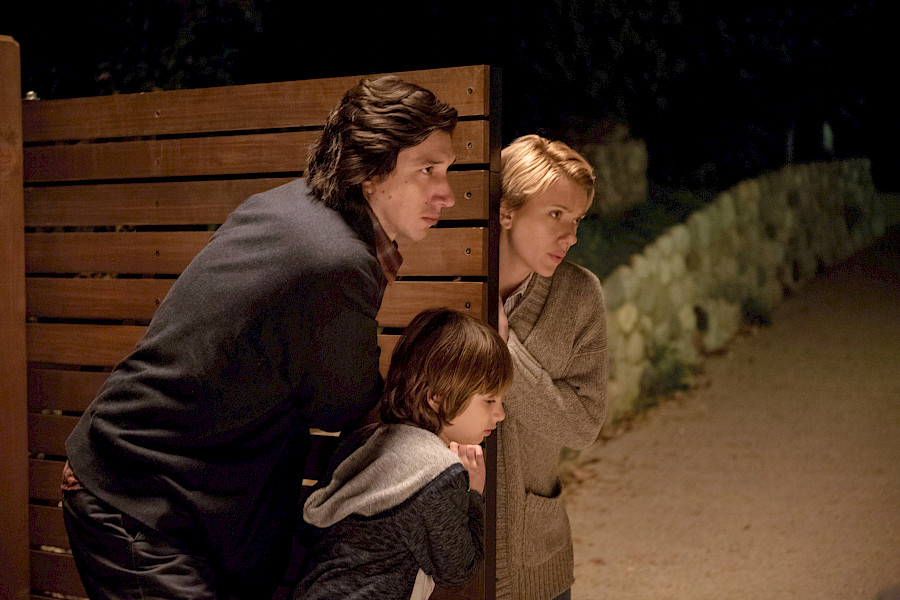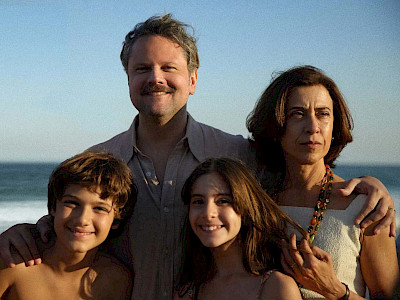
In 335 BC, Aristotle wrote a treatise on drama theory called "Poetics." While only fragments of
the treatise remain, it lays the groundwork for understanding how people perceive emotional narratives, suggesting that our psycho-emotional structure, though evolving, remains rooted in the principles outlined by Aristotle. Everything stimulates imitation. Since we are social beings, we cannot exist without each other, just as we cannot develop without observing and subsequently applying these observations to our lives in various forms. Paradoxically, those who resist integrating other’s experiences often find themselves confronted with similar circumstances, in which they will have to undergo someone else’s experience on themselves. It indicates that not always focus and attention are the decisive functions in choosing a life path; more often, what was observed in the past becomes the foundation of the future. This is what happened to one of the most sincere directors of our time,
Noah Baumbach.
Baumbach was born in Brooklyn, New York, on the 3rd of September, 1969, as the third child of Jonathan Baumbach. He directed his first film at the age of 24, immediately garnering attention. The thing is, Baumbach has a keen sense of the invisible connections between people, a profound understanding of the map of circumstances and behavioural psychology. He has developed his method of conveying the ideas he examines, portraying the sincere nature of his stories and characters without judgement. So why is "Marriage Story" considered his best work? It's quite simple. In "Marriage Story," the audience observes how love lives even when everything around it is falling apart, amidst anxiety, worry, and disappointment. Baumbach captures the essence of maintaining relationships in a modern capitalist society, where ambition and career advancement are highly prized. To say that Baumbach touched on the fundamental problems of the modern world is to say nothing because the conflict lies in the problem of adapting the spiritual need to feel love to the realities where the influence of external forces
can easily lead even the strongest, most principled, and resilient individual astray from the spiritual path. A global understanding of circumstances also frees from condemnation for actions. Nobody is to blame for anything.
Charlie (Adam Driver) is a decisive theatrical director who consistently achieves his goals. It’s no surprise that Charlie owns a theatre where his wife, Nicole (Scarlett Johansson), is one of the leading actresses. The theatre serves as a symbol of the social structure, where many actors remain unaware that they are mere instruments. Naturally, those who realise their roles have the right to choose: to accept or to build their theatre. Those who opt for the latter will face resistance – after all, you cannot build something without destroying anything. Despite this, Nicole remains determined, and she is not going to step back.
Nora Fanshaw (Laura Dern), Nicole's lawyer, is notorious for her ruthless tactics, prioritising victory above all else. She’s ready to exploit the family’s weakest points, secrets that should remain concealed. Yet, this principle does not apply to Nora, as the future of her client is at stake. Charlie finds himself struggling to find a suitable lawyer who truly empathises with his feelings and concerns, but after he encounters Nora, he realises the gravity of the situation – this is a fight for survival, devoid of any spiritual considerations. He turns to a lawyer with the same approach because if you live with wolves, you have to howl like a wolf. Jay Marotta (Ray Liotta) is familiar with Nora's aggressive approach, knows how to engage with her effectively. Amidst the legal battle, Charlie and Nicole’s primary concern remains the fate of their son. While Charlie cherishes being a father and opposes relocating from New York to Los Angeles, Nicole has her own desires. It's fascinating how fates intertwine. Charlie, a director, fell in love with an actress and made her part of his theatre, where she discovered her own directorial talent. Despite Charlie's reluctance to relinquish his directorial role, Nicole understood that true fulfilment lay elsewhere. She left, yet her love remained.
"I have a significant connection to the material... but then it was during that period of my life when many of my friends got divorced. I saw this as an opportunity to create something more candid, so I did a lot of analysis on this issue. I interviewed many of my friends, as well as friends of friends, and then also lawyers, judges, mediators." – Noah Baumbach.
The idea came to Baumbach in 2016, after his divorce from actress Jennifer Jason Leigh. He based Nora Fanshaw on the well-known lawyer Laura Wasser and even filmed some scenes in her office. She is known for representing the interests of celebrities in court, including Baumbach himself, Scarlett Johansson, and even Laura Dern, who portrayed Nora Fanshaw. This suggests that those involved in the project used their personal experience to shape the characters, lending the film its dramatic depth, because to play what one has experienced means to relive it.
The film secured its place among the top ten films of 2019. The scene set in the rented apartment in Los Angeles demanded two days for its completion. Adam Driver and Scarlett Johansson performed it 50 times before the word “cut” was heard. The final scene was shot in 76 takes. Through his work, Noah shed all the stress from his personal experiences. Perhaps he was tired of constantly thinking about divorce, as his early film “The Squid and the Whale” was also born during his parents' divorce. Redirecting his energy into his creative process may have been his way of avoiding revisiting those painful memories. Alternatively, the detailed exploration of this subject matter might explain why the film resonated so profoundly, offering an emotional compass for those navigating the tumult of a breakup.



